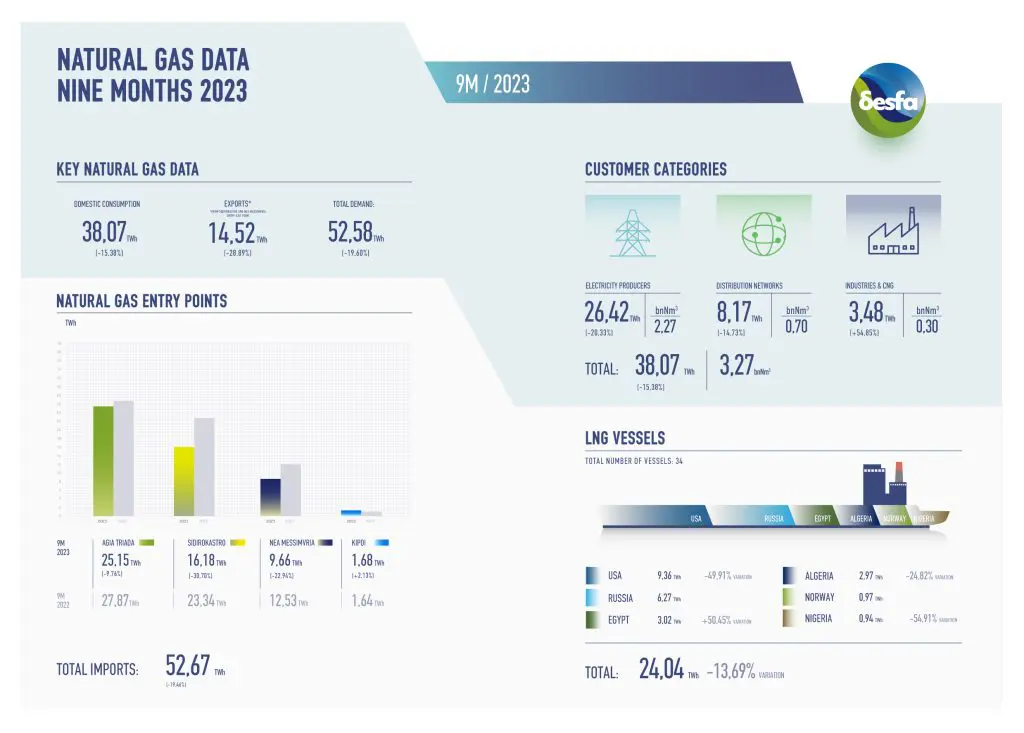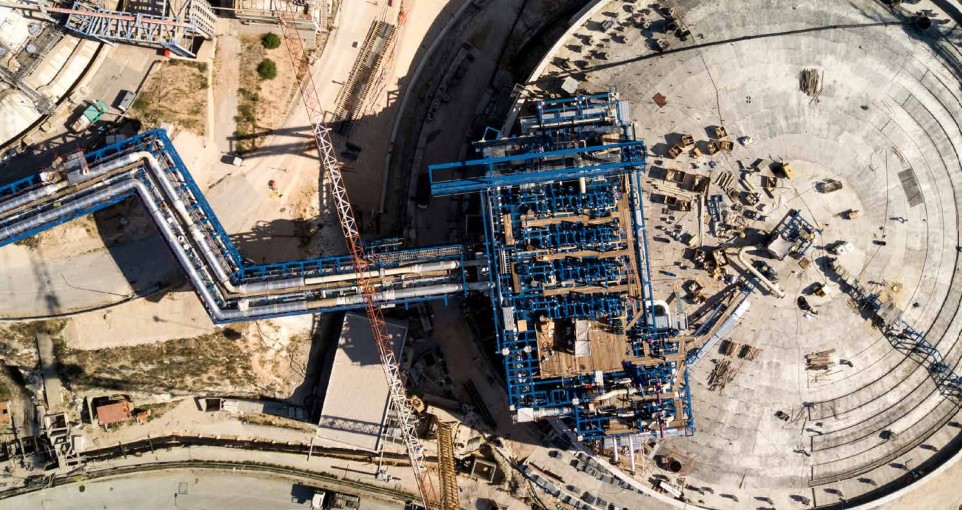Liquefied natural gas (LNG) deliveries to Greece’s Revithoussa terminal decreased 13.7 percent in the January-September period of this year, according to DESFA.
The shipments in the period totaled 24.04 terawatt hours, or 34 tankers, the Greek gas grid and LNG terminal operator said.
This compares to record 60 cargoes and 27.85 TWh of LNG in the January-September last year.
In the first half of this year, the shipments totaled 17.3 TWh, or 26 tankers, meaning that the imports in the third quarter were at 6.74 TWh, or 8 tankers.
Greek LNG imports via the Revithoussa terminal surged to record 78 LNG cargoes in 2022 due to significantly higher volumes from the US, while the facility is fully booked for 2023.

US volumes dip
The US remained the largest LNG supplier to Greece with a 38.92 percent share of all LNG imports in the period under review, DESFA said.
However, deliveries from US liquefaction plants to Greece reached 9.36 TWh in the period, down 49.9 percent compared to the same period last year, it said.
Russia ranked second with imports of 6.27 TWh, followed by Egypt with 3.02 TWh, Algeria with 2.97 TWh, Norway with 0.97 TWh, Nigeria with 0.94 TWh, and Spain with 0.51 TWh.
DESFA said that 47.8 percent of all imported gas to Greece in the January-September period, including pipeline gas, came via the Revithoussa terminal.
This facility is currently the only LNG import facility in Greece but it will be joined next year by Gastrade’s FSRU-based LNG import project in Alexandroupolis.
Total gas imports to Greece amounted to 52.67 TWh, a drop of 19.5 percent from the same period last year.
DESFA said the domestic consumption of natural gas decreased by 15.4 percent, reaching 38.07 TWh in the period under review with a milder winter playing a “significant role” in this decline.
In addition, exports recorded a decrease of 28.9 percent, compared to the previous year, with about 14.52 TWh exported, it said.
The primary reason for this decrease is the start of operations of the ICGB pipeline on October 1, 2022, which now transports Azeri natural gas to Bulgaria, DESFA said.

